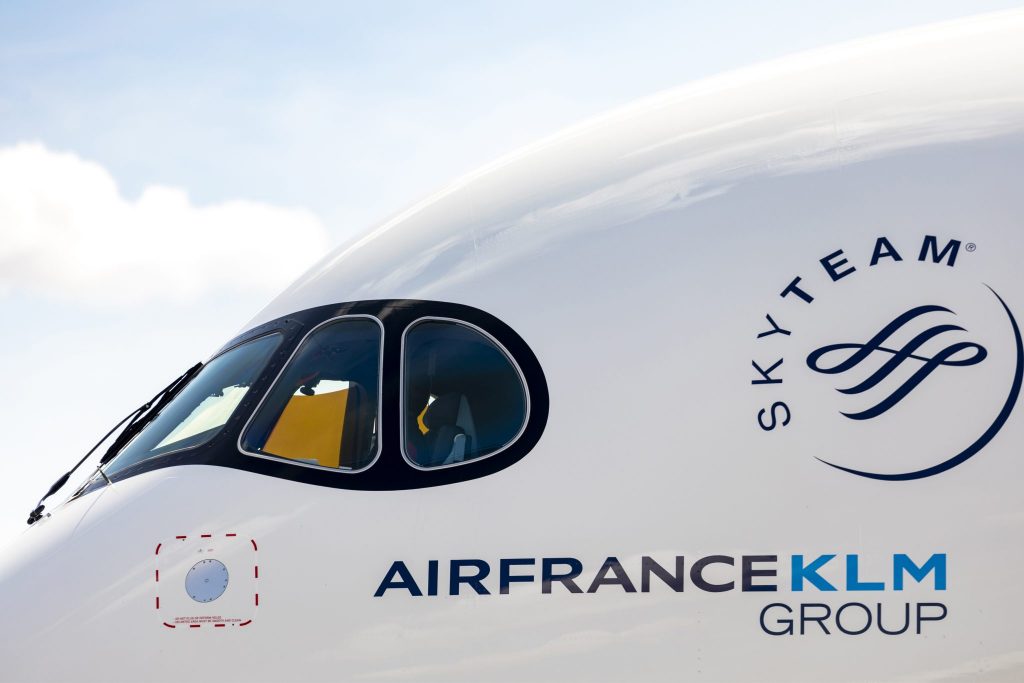Skift Take
A mixed set of results from Air France-KLM shows that even during the post-pandemic boom, profitability cannot be taken for granted.
As one of Europe’s largest airline supergroups, what’s happening at Air France-KLM matters.
It posted its full-year results for 2023 on Thursday and there was plenty to celebrate. The company chalked up €30 billion in revenue last year – the highest in its history – and is progressing well across multiple transformation programs.
However, there were also some major challenges, including an unexpected operating loss in the fourth quarter. Here are three key things we learned from Air France-KLM’s latest results:
1. Geopolitics is Hitting Profitability, But Not Everywhere
In line with most other international operators, Air France-KLM halted all flights to Tel Aviv after the start of the Israel-Gaza war in early October 2023.
While Air France restarted services to Israel in late January, KLM has yet to do so. The Franco-Dutch group said the situation had a knock-on impact across the wider region, including Lebanon and Egypt.
The conflict in Gaza is just one of several geopolitical flashpoints that impacted its most recent results. Instability in Niger, Mali, and Burkina Faso was highlighted by the company as an additional drag on performance. Air France in particular has a significant exposure to the West African market.
While the closure of Russian airspace continues to result in longer journey times to and from Asia, Group CEO Ben Smith did identify one brighter spot.
He reported that demand to and from India has been especially strong, with improved revenues due to the changing travel patterns. Smith acknowledged that this “could change at any moment,” and said, “We are enjoying that while it is there.”
Overall, the group estimates that the geopolitical situation in Africa and the Middle East wiped €65 million ($70 million) from its operating result.
2. The Paris Olympics Should Be Net-Positive For Air France
The arrival of the world’s biggest sporting event should be a guaranteed cash generator, but this isn’t always the case. Host cities for the Olympic and Paralympic Games can often see regular tourists stay away. Lucrative business travelers may also postpone non-essential visits until after the competition to dodge the crowds and inflated prices.
As Paris in July and August is usually awash with tourists from all over the world, is Air France worried about the opportunity cost of the Games? Not so, according to Smith.
The CEO said that as the company already operates its full fleet during the peak summer months, it couldn’t add additional passenger capacity during the Olympics.
However, he acknowledged that there may be a slight increase in the amount the airline earns from each passenger flown. Smith pointed to previous major sporting tournaments hosted in France as evidence for this.
In terms of actual bookings during the Olympic period, Smith said there were “no worrying trends”, adding that there was actually a “slight improvement” over what Air France would normally see.
The CEO said an enormous amount of planning has gone into this summer, both internally and with airport stakeholders to ensure everything runs smoothly.
3. Premium Leisure is Back-Filling Any Corporate Travel Weakness
The boom in high-spending leisure travelers has been one of the biggest post-pandemic airline trends – but has it been enough to counter sluggish demand by business travelers?
Smith admitted that some of the company’s largest clients aren’t spending in the way they used to, but said the attraction of in-person meetings will endure.
“We’re hearing from our big customers that some of them are not as interested in flying – they’ve got used to staying home. But at the same time, a lot of corporates are very concerned about holding onto their market share and know they have to get in front of their customers directly.”
Well-heeled leisure passengers have back-filled any softness in traditional business traffic. Smith said it had been “very, very strong” for the company, especially in Paris. Because of this, the group has actually increased the size of its premium cabins in some markets to cope with higher net demand for its top-end products.
“Yes business travel in many markets is not at 2019 [levels], but we have this unique leisure high-yielding market,” said Smith.
The CEO highlighted that even before the pandemic, the French capital had a different passenger mix than other European cities. “Paris is not London. Before the crisis, 50% of premium traffic was already made up of leisure travelers. The fact that we may not be going back to 100% corporate does not hit us like it might for airlines that are in a very business-focused city.”
Group-wide, the occupancy rate in the company’s premium cabins was up two percentage points versus 2019. While some of this can be attributed to larger cabins and aircraft, it also suggests that the post-pandemic ‘revenge travel’ trend could be here to stay.
Watch Ben Smith Speak at the Skift Global Forum East 2023 Here:
The Daily Newsletter
Our daily coverage of the global travel industry. Written by editors and analysts from across Skift’s brands.
Have a confidential tip for Skift? Get in touch
Tags: air france, air france-klm, ben smith, klm, transavia
